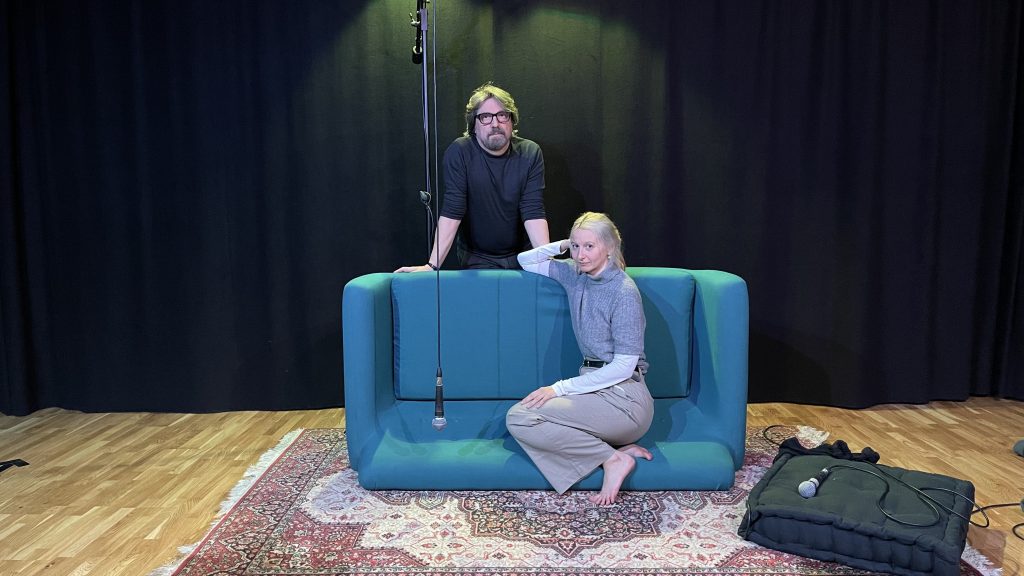
Irene Curto and Joe Schievano
Dragonfly is a love song poised between the fear of reason and the charm of madness. It is the central and most poetically revolutionary work of the poetic work of Amelia Rosselli. Her poetry and her linguistic experimentation are born from the mixture of the three languages with which she grew up: French, English and Italian. Another “language” that belongs to her and that will push her to have a sensorial, rhythmic and rigorous attitude towards writing is music. Amelia was in fact a musician, before being a writer. This will push her to focus on the metric of her verses, almost to give it a perfect geometric shape in which she still manages to explode her emotional power.
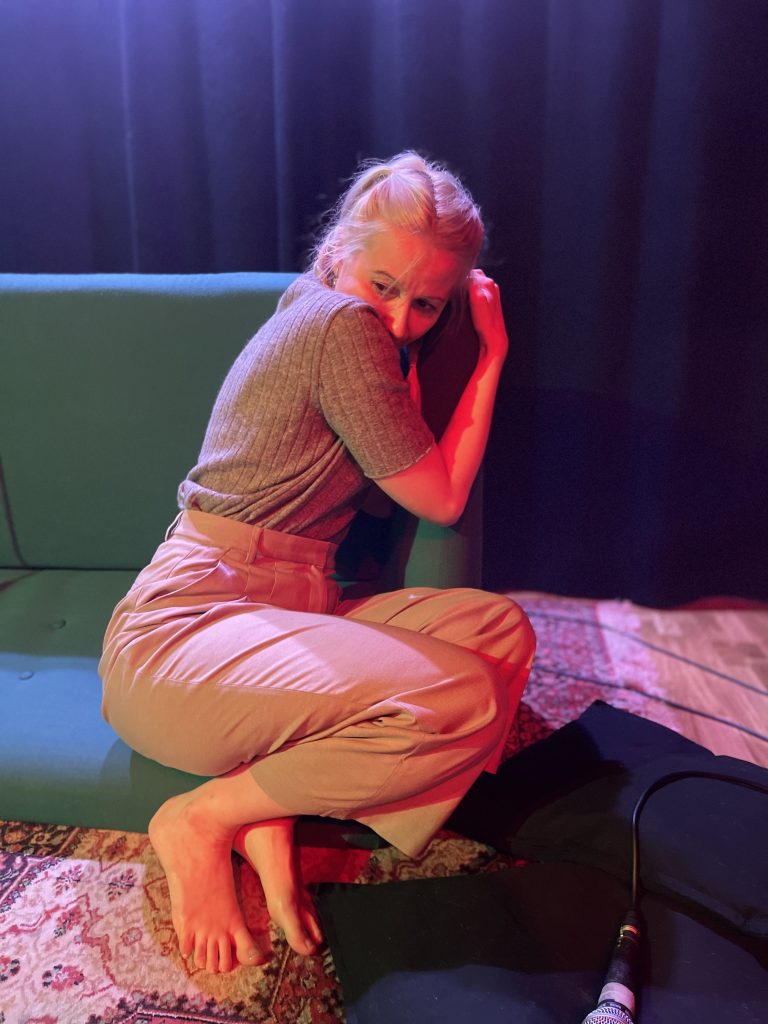
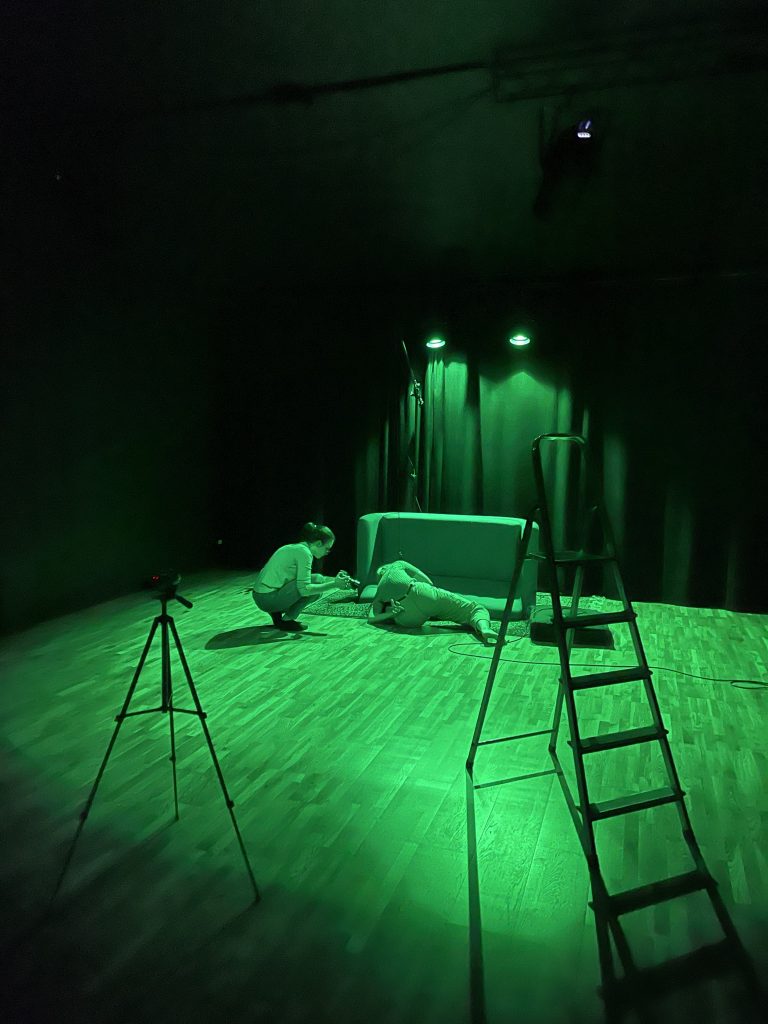
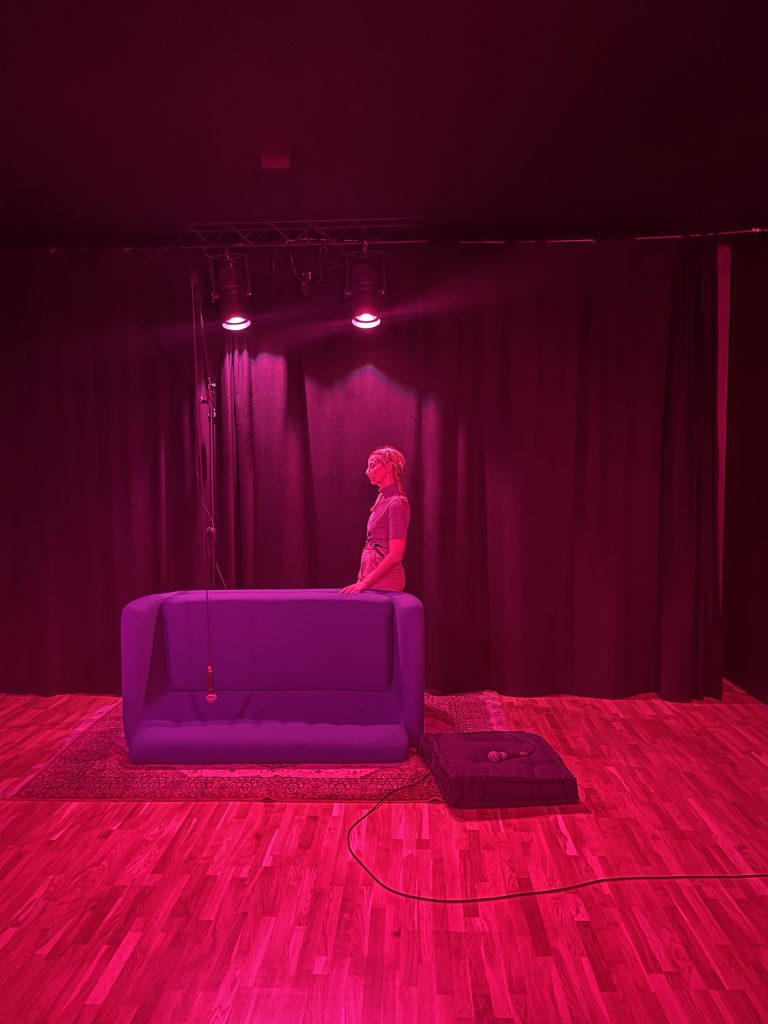
In staging these distinctly lyrical, visionary and emotionally poignant verses, a “big and small together” woman emerged, an example of revolution and feminine strength, but also of fragility and sweet humanity in a precarious balance between reason and vision, between desire and rejection, delirium and eroticism, love and hate, song and scream, anger and sweetness. The interlocutor to whom he addresses is always a YOU, a loving you, God, enemy, public… The search for the Other from oneself towards which to strive and towards which one always feels an excruciating distance, is however unattainable and unknowable. The union towards which the poem tends is the union of everything, not only of the lover with the beloved, but the return to a state of primeval and mystical grace, where everything is both light and misery. Dragonfly is a hymn that pushes us to accept the countless facets of our emotional, human and naturally fragile being, split in two. Her verses bring us face to face with the wound, the primordial abandonment, essentially with our being human, perhaps in need of pity, more than reason.
The element of music and sound
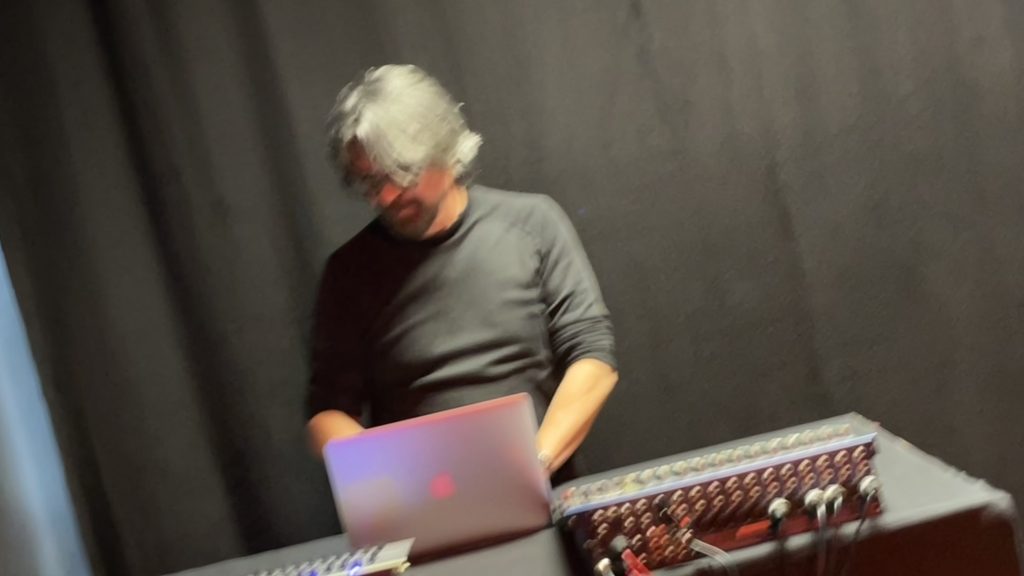
With Irene Curto, actress and performer, a bare, linear and musical scene was chosen. The musical and sound element was fundamental in restoring the unconscious and profound world of this artist. The dramaturgical function of sound is to dialogue with the irrational, preparing the audience for a sensorial listening. In the actor’s interpretation there has been a work in the opposite direction making the verses where possible everyday, the concrete gestures, placing them in the theatrical place to make them usable and intelligible to a wider audience.
Dreamlike sonorities, apparently asynchronous percussions, fragments of classical themes that appear and then disappear, sounds of nature, bells of steeples, but also modified bells that vibrate and resound, broken voices and telluric sounds unfold like a texture embraced by thought.
Irene Curto: Performer
Joe Schievano: Music and live set
Milena Costanzo: Acting coach
Production: Kaliscopio Theater and Soundrivemotion
